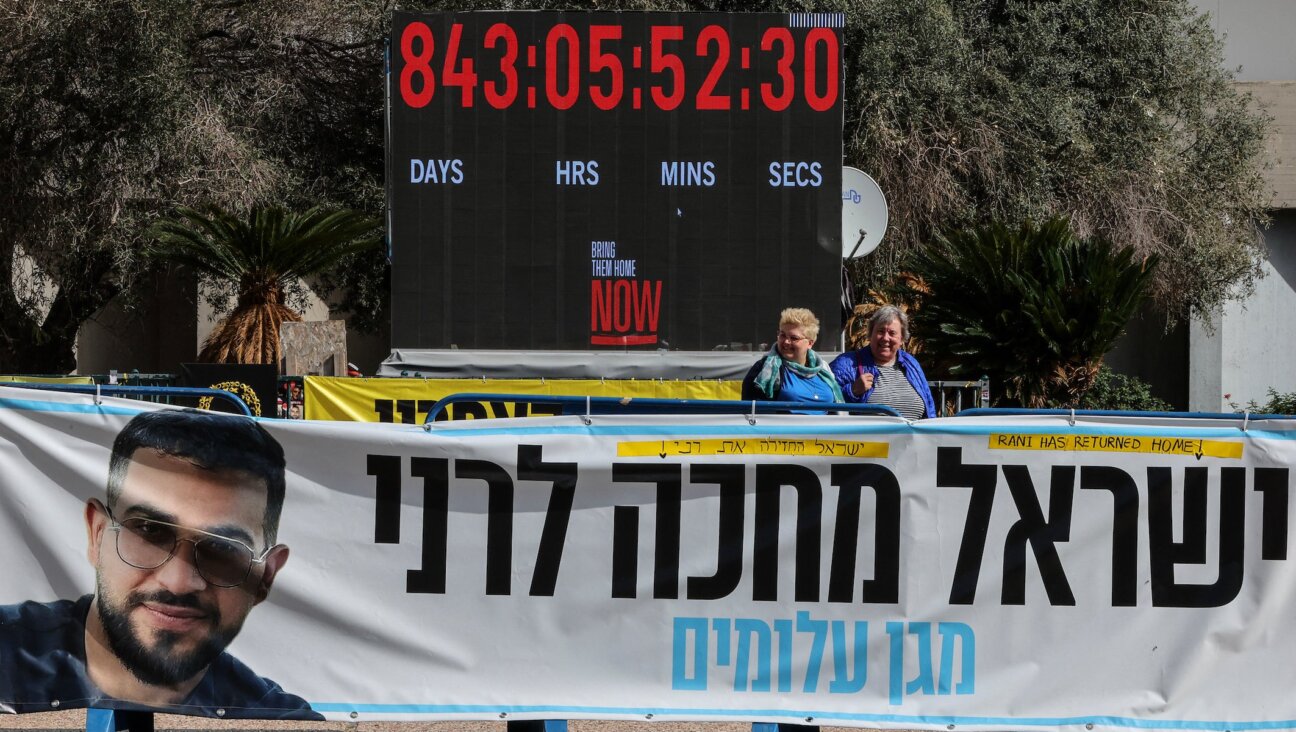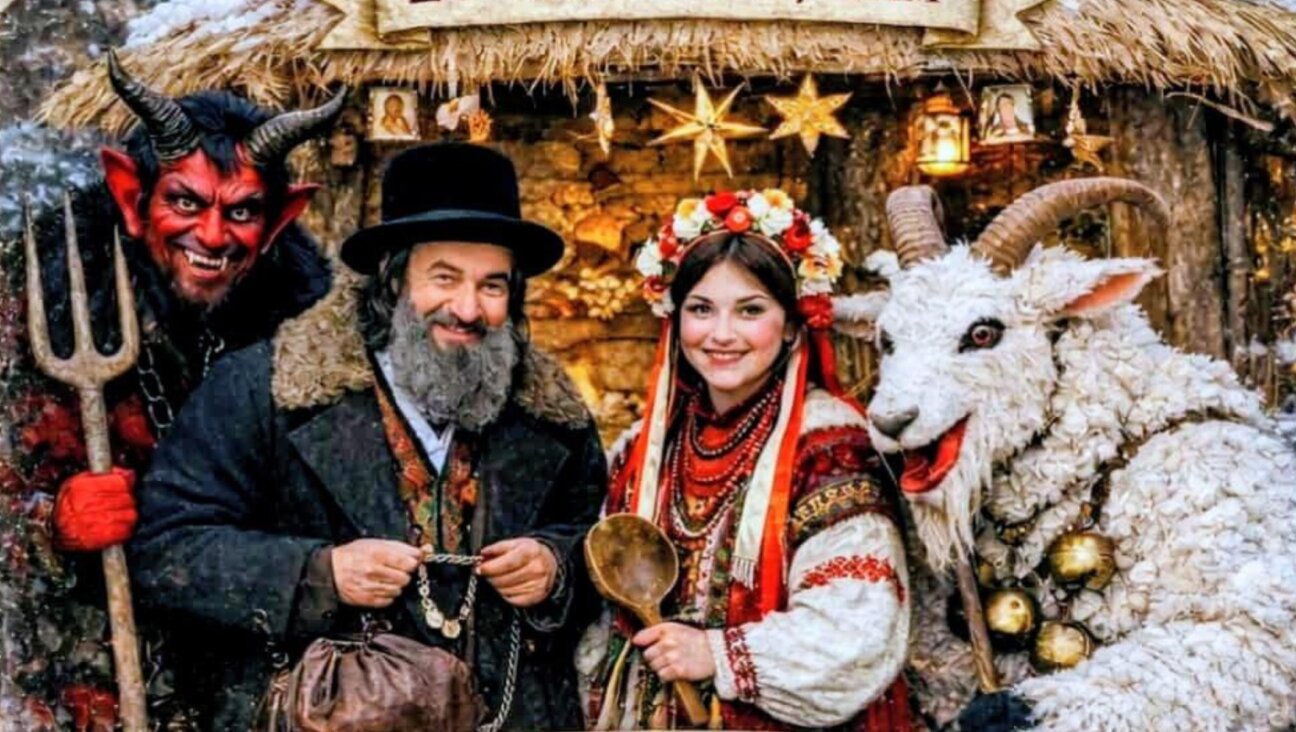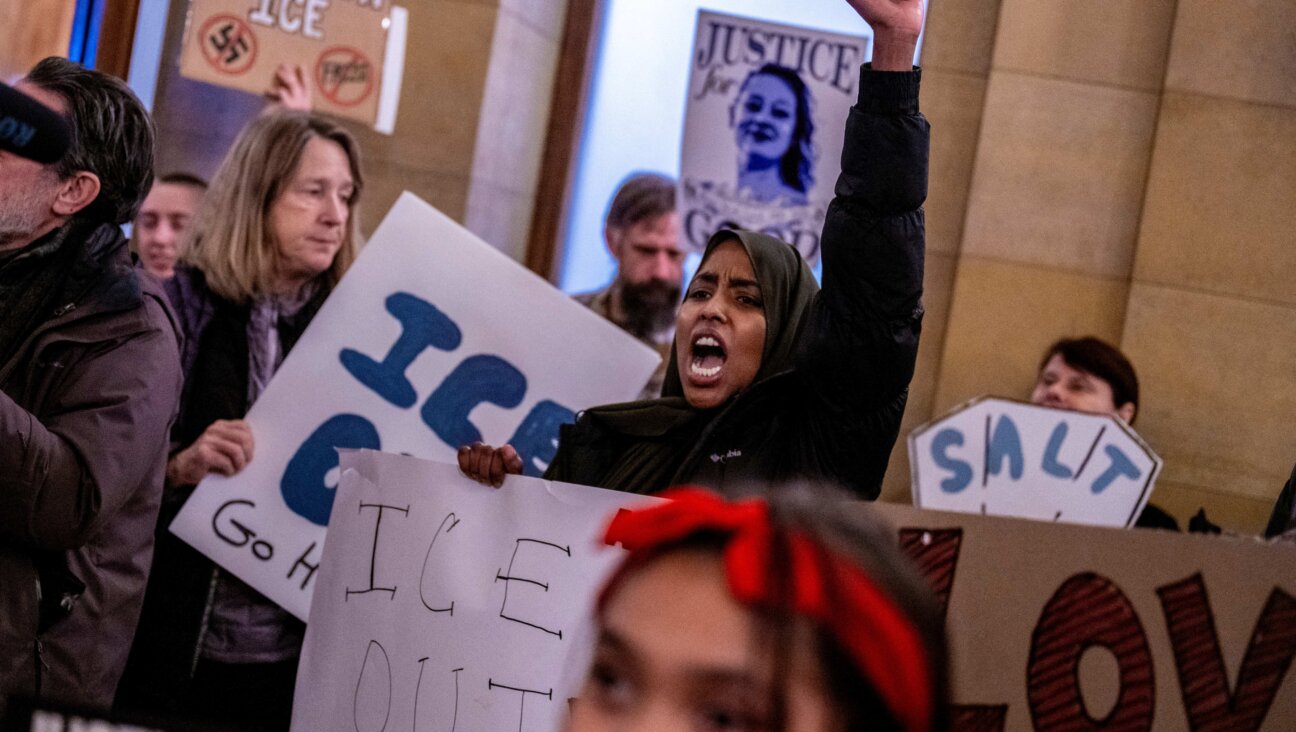Kosher Slaughter Ban Kills $1.3B Poland Industry

Graphic by Angelie Zaslavsky
The slaughterhouse in this small town in western Poland has a special dormitory to house the more than 30 Jewish men designated by Israel’s chief rabbi to oversee the production of kosher beef there.
Since the slaughterhouse received permission to export to Israel five years ago, thousands of bulls were herded inside the building and one of three designated individuals, using a specially chosen knife, severed their trachea, oesophagus and major blood vessels and bled them to death – in the method that is common to kosher and halal butchery.
With beef consumption falling in Europe and many other markets closed to new players or dominated by Brazil and other South American producers, Polish abattoirs saw Israel and Arab countries in the Middle East as the best opportunity for growth.
Poland exports 90 percent of its beef, a third of which was kosher or halal worth some 1 billion euros ($1.3 billion).
But this booming industry has ground to a halt because, after a campaign by animal rights activists who say the method of slaughter is cruel, Poland’s constitutional court banned the practice and this month its parliament rejected an amendment that would have allowed the slaughter to resume.
Parliament’s unexpected decision caused an outcry among Jewish groups around the world, who said banning kosher slaughter was an infringement of religious freedom.
They said anti-Jewish prejudice played a part – a stinging accusation against a country where Nazi Germany killed millions of Jews during World War Two.
But in the Biernacki slaughterhouse in Goliny, 350 km (217 miles) west of the Polish capital Warsaw, the fallout was about the economic cost of banning kosher and halal meat production.
“We still cling to the hope politicians will reconsider,” said Tomasz Kublik, the company’s chief executive. “If nothing changes, we’ll shift production to lower margin meat products and may need to let go of many of our workers.”
The family-owned company, which processed as many as 18,000 heads of cattle each month, became Poland’s top producer of kosher and halal beef, with about half of its production sent to Jewish and Muslim clients abroad.
HISTORIC CONNECTIONS
Poland, the home of a large Jewish community before the Holocaust, enjoys historical connections with Israel that made it easier to win business there.
Polish meat producers, who have the advantage of lower production costs than most European rivals, have also seen a rising demand in the Middle East following the Arab Spring, which boosted the role of religion in many countries there.
Biernacki, which exported 40,000 tonnes of beef to Israel annually, also sought to tap the large Arab communities in European countries like France, where it became the largest importer of Polish beef with its halal meat.
Since kosher and halal meat carry higher margins, Biernacki was able to raise the prices it was paying farmers within a 150-km radius for their cattle, encouraging more to invest in buying animals for meat production.
When the government failed to push through the amendment eliminating the ban on kosher meat production, Biernacki and other abattoirs immediately slashed the prices offered for cattle by as much as 13 percent.
Some farmers still cling to the hope that the constitutional court will rule the ban violates religious rights of Jews and Muslims, but say they must reconsider whether to continue raising cattle after a plunge in pork prices devastated thousands of farms several years ago.
“I face a dilemma whether I should buy new calves and I have no idea what I should do right now,” said Jan Szyszka, a farmer who owns some 100 heads of cattle. “At current prices I am losing money on every animal I sell (to a slaughterhouse).”
Polish farmers still mainly own cattle for dairy production and sell young bulls to those who raise them for meat. The animal is usually slaughtered after two years, which means heavy upfront spending for its owner.
But animal rights activists say no price tag can be put on stopping a cruel method of slaughter. They argue Poland’s entire kosher and halal meat industry was built on an overly broad interpretation of EU law, which in most cases bans the killing of animals with stunning them.
“The exception (to meet the needs of religious communities) wasn’t created for a member state to build a huge business of producing meat for exports outside the European Union,” said Dorota Wiland, the head of animal rights group Ius Animalia.















